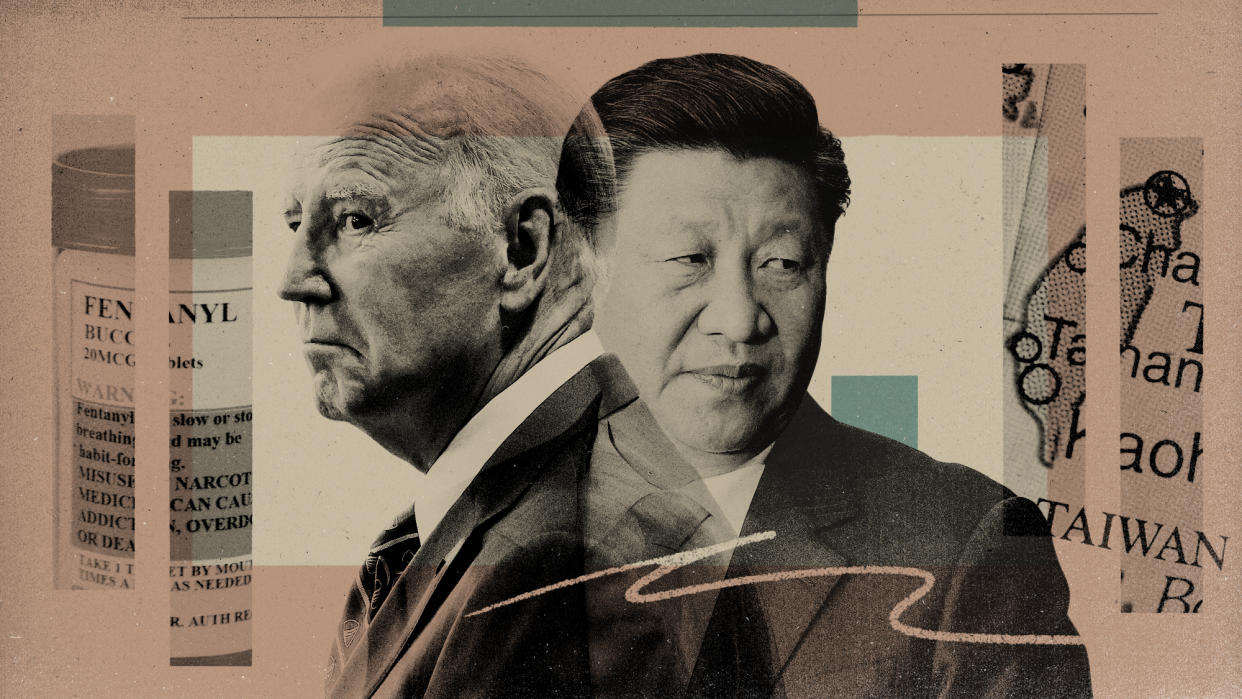Xi-Biden meeting: what's in it for both leaders?

- Oops!Something went wrong.Please try again later.
- Oops!Something went wrong.Please try again later.
China's leader Xi Jinping will visit the US for the first time in six years, as the two biggest superpowers seek to stabilise relations amid increasing global uncertainty.
President Joe Biden will meet his Chinese counterpart on the sidelines of the Asia-Pacific Economic Cooperation summit in San Francisco, "hoping to stabilise US-China relations after a period of tumult", said The Associated Press. Biden will confront him on "difficult issues such as trade, Beijing's burgeoning relationship with Iran and human rights concerns".
The two leaders last spoke a year ago at a summit in Bali, and since then the "already fraught ties" between the superpowers have been "further strained" by the downing of a Chinese spy balloon over the continental US, said AP News, as well as "China's hacking of a Biden official's emails" and their differences over Taiwan.
What the papers said
There's plenty for the two to discuss, said the Financial Times's Swamp Notes newsletter, including the US fentanyl crisis and China's role in the shipping of the synthetic opioid to Mexican cartels for US distribution, and "the prospect of reestablishing military communications". But "while you'll see a lot of cheery optics", core issues between the two countries "aren't getting any easier".
There's a lot riding on the meeting, agreed foreign affairs columnist Ishaan Tharoor in The Washington Post. The US is "enmeshed in supporting two bloody, polarising wars" in Ukraine and Gaza, and may see this summit as "an opportune moment to lower the temperature with Beijing".
Xi is "arguably in worse shape, with China's economy slumping, investor capital fleeing the country, and the deep damage wrought by Beijing's draconian mishandling of the pandemic". Biden may face a "complicated election cycle ahead", but Xi "needs the summit to buttress his leadership credentials amid mounting scrutiny on his rule".
A Biden administration official told AP News that "one big reason why Xi decided to make the trip to the US was to send the message to American CEOs that China was still a good place to invest".
Simply by sitting down with Xi, Biden too "may go a long way toward calming voters who fear that the two global powers are on a march to war", said NBC News's senior White House reporter Peter Nicholas. He could "gain traction" with more moderate voters by pursuing a dialogue with Xi, and "eschewing the hawkish stance many in Trump's orbit embrace".
Biden is "expected to press Xi to use his leverage to stop North Korea from supplying weapons to Russia", and to "get Xi to persuade Iran not to use its proxies in the Middle East to combat Israel". Xi, for his part, "would like to see fewer high-level visits to Taiwan from US officials", former diplomats told NBC News.
Xi will "probably seek to get reassurance that the US will not favour any anti-China candidate" ahead of Taiwan's elections in January, said Agathe Demarais, from the European Council on Foreign Relations, in Foreign Policy. Indeed, with elections also around the corner in the US, "this may be Beijing's last opportunity to make its case to the Biden administration before a year of upheaval", said The Guardian.
From Biden's perspective, "the perceived need to adopt a tough stance on China is perhaps the only topic that still attracts broad partisan support", added Demarais. Any agreement from Beijing to clamp down on fentanyl shipments would be "a bipartisan win".
What next?
There is "speculation" the two sides may announce a working group to discuss AI, said the BBC's Asia digital reporter Tessa Wong, which the Chinese "reportedly hope to use to persuade the Americans not to further extend US technology export restrictions".
Both sides could pledge to ban the use of AI in autonomous weapons, such as drones, said Demarais in Foreign Policy. Such an agreement would be "mostly symbolic", but "even a fake pledge" could "pave the way for more collaboration" on technology regulation. However, "Beijing's anti-Western rhetoric will not disappear any time soon".
If China takes actions after the summit that "run counter to US interests", Biden could "open himself to accusations that for all the stagecraft and summitry, he was outmatched", said NBC's Nicholas. Having "laid out what he wants of Xi", and "billed himself as a deft negotiator on the world stage", Biden can "ill afford for Xi to defy him".

